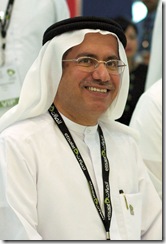When Info2Cell.com launched in 1998, it was the first Arab company to provide value added services (VAS) in the telecoms space. A decade on, it provides content to 30 mobile operators across the Middle East. Bashar Dahabra shares some of the challenges the industry faces

For many years in the late 1990s and early 2000s Info2Cell.com enjoyed a monopoly in the region. However, in recent years, as it has witnessed more content providers enter the regional market, Info2Cell has considered selling direct to consumers in a business-to-consumer (B2C) model through an Internet portal, as opposed to the traditional business-to-business (B2B) model, where operators market the services.


 Nigeria’s telecoms sector has experienced exponential growth over the past seven years, sprouting from less than one per cent teledensity in 2001 to 40 per cent by August this year. The country’s 55 million subscribers are served by five GSM operators and a fixed line incumbent, as well as several other service providers offering an array of fixed and wireless propositions. With Etisalat having launched commercial services in the country on October 24, Africa’s largest telecoms market is fast developing into one of its most competitive
Nigeria’s telecoms sector has experienced exponential growth over the past seven years, sprouting from less than one per cent teledensity in 2001 to 40 per cent by August this year. The country’s 55 million subscribers are served by five GSM operators and a fixed line incumbent, as well as several other service providers offering an array of fixed and wireless propositions. With Etisalat having launched commercial services in the country on October 24, Africa’s largest telecoms market is fast developing into one of its most competitive



